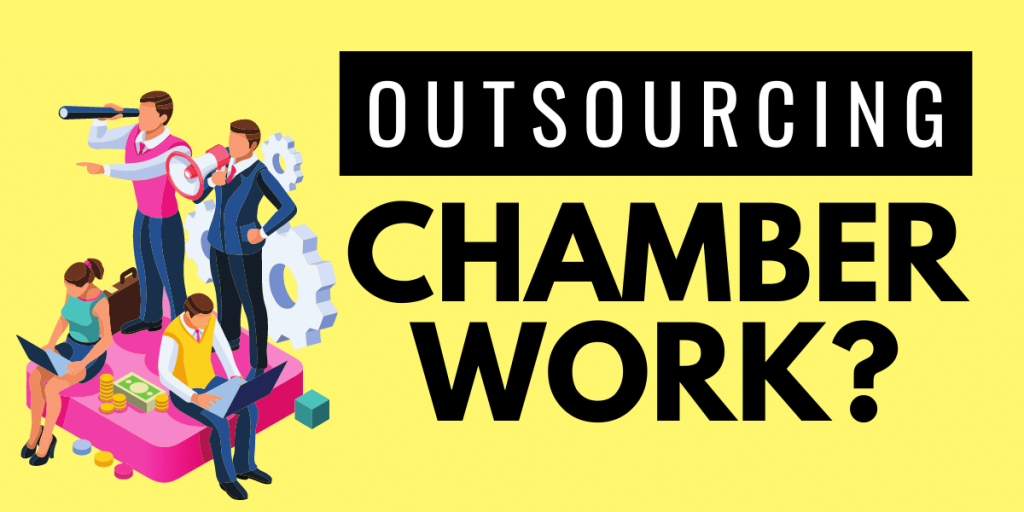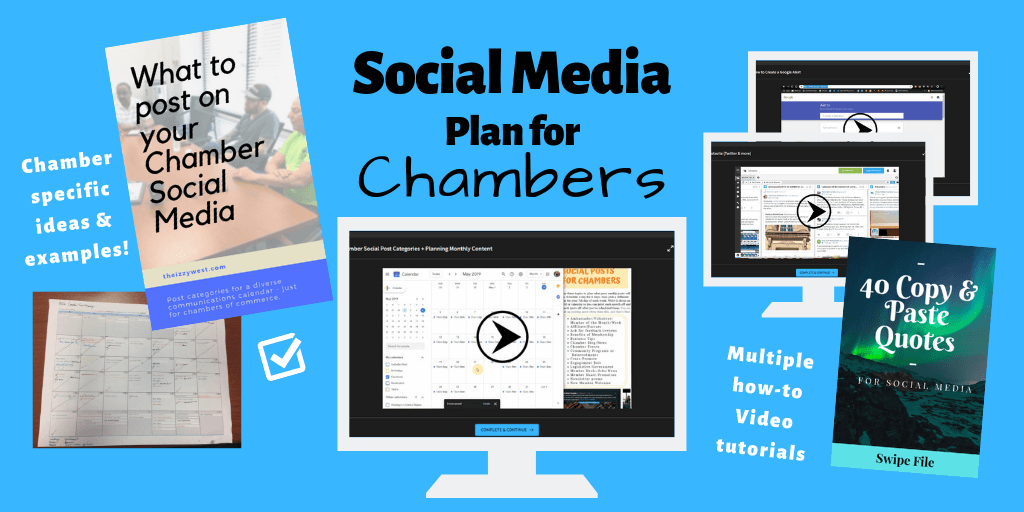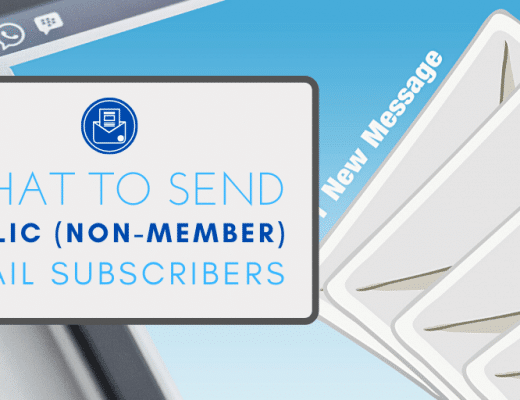Disclaimer: This page may contain affiliate links, meaning I earn a small commission on direct purchases through them. You do not pay any more because of it. Please see my Privacy Policy, etc. page for more information. Thanks for your support!
I feel super icky writing a title like that, but I’ve had a few chambers reach out with questions on hiring a digital marketing person or other staff like me. And while I am now available as an independent contract for chambers, I also totally get it’s not the same as having staff. So I’ve really thought about what’s helped me grow, and what kept me at my chamber for seven years.
Hire Right First
When you’re hiring you basically have two options: hire talent (and pay for it) or hire potential & grow their talent.
There’s not really a “right” answer, it just depends on your budget & your culture. But since you’re a nonprofit, it’s probably the latter.
Chances are, many of you can’t afford an experienced marketing professional. You can use glassdoor to see what the current salaries in your area are, buuut it’s probably at least double what you want to pay. So if that’s you, I’ll list some trainings & other things below you can more actively work on for your staff.
However, providing training and benefits can’t help someone if they don’t actually want to be there.
So focus on hiring the aspects you can’t teach and train them on the rest.
When interviewing a potential employee, consider these points:
- How are their basic soft skills? Do you feel comfortable interact with members tomorrow?
- Are they genuinely interested in the work of the organization or the job role?
- Are they easily irritated or flustered by problems or unexpected questions?
- What other soft skills or personality traits does someone need to fit in at your office or serve your members?
- What are your & your team’s weaknesses? Find a person with those strengths.
PS: If When you decide to go through IOM, you’ll learn from a more qualified professional than I on hiring & firing people the first year you go. Speaking of…
Chamber Specific Trainings
Yes, they cost money – but probably not as much as the salary difference for someone who already knows this stuff.
And yes, I recommend the chamber pays for these, not the staff.
IOM
IOM stands for the Institute of Organization Management (more chamber acronyms here). Basically, I tell my Mom I’m going to “chamber college.”
They have 4 site locations in the US. Most of us go for 1 week 4 years in a row, but you can come & go if something comes up, or go to all 4 in one year if you really need to.
I would venture to say it’s the most recognized accreditation in our profession. You learn a ton of stuff over multiple aspects of being a leader in a nonprofit.
While you might hesitate to send staff that’s not a CEO (especially if they’re new), I ask that if you can afford it – send them.
You learn a lot about various roles. While not everything will be immediately applicable to them, you don’t know how they’ll grow in your organization. They might eventually move to a different department, or can just better support their fellow staff because they have a better understanding what needs to be done.
For example, I am the marketing person on a staff of 3. Finances is the one thing I’m not allowed to touch (as advised by our auditor). I can take your money, but I have no idea where it goes. But after the financial classes at IOM, I at least have a general understanding of budgets. I also now strategically think about potential sponsors for new event ideas I chat with my CEO about, and I think of ways to pay or account for new equipment or tools.
IOM might seem like an expensive investment to send new staff to, but they sooner they start going, the sooner they’ll graduate. How long do you really want to wait for them to go through the program?
Social Media for Chambers
Let’s get the shameless self-plug out of the way. I sell a course on creating a Social Media/Content Calendar.
Because it’s a course and not a done-for-you solution, I walk you through strategically thinking about chambers post about on social media and why. While it walks you through creating a schedule you can check off, I think it’s important to understand why social media is important, and think about your chamber specifically. I share my calendar as a reference, but I don’t really provide a set schedule to copy because your chamber should be a little different than mine.
You can also find free content calendars and social media tips online, but this course is different in that in that it is specifically for chambers of commerce, and give examples by other chambers.
If your marketing staff is new to the chamber industry (or you’re a chamber pro new to social media), this can be a great addition to your onboarding.
DigitalMarketer Courses
I have multiple certificates from DigitalMarketer.
I recommend you or your new staff looks at the list of courses, workshops, etc. and create a list of ones you want to purchase by order of importance.
You may both want to look at these as the CEO may better understand what the chamber needs, but your new staff will know their own weaknesses.
Here’s some quick thoughts to get you started:
- Search Marketing Mastery – Why do (or could) people be looking for the chamber online? Do you show up Google for those reasons?
- Data & Analytics Mastery – While you should already have a Google Analytics account, do you ever look at the data in it? Are you able to glean takeaways on the information about your website?
- Community Management Mastery – I think the most common relevance is if you have or want a Facebook Group and want it to do better.
Or check out their all-inclusive Lab for a smaller monthly fee. It includes all of their certifications, playbooks, workshops, etc.
Area ACCEs
Look for state or regional Associations of Chamber of Commerce Executives. ACCE has some excellent national events, but going to one a little closer to home might save you more in expenses.
For me, there’s a Carolinas Association of Chamber of Commerce Executives that has both an annual Staff Leadership Development Conference and Annual Management Conference.
While you don’t earn a fancy certificate, you learn invaluable chamber specific information, and meet a network of fellow chamber professionals.
Even if you’re introvert, I challenge you to participate in some casual networking opportunities, whether it’s in between sessions, at the hotel bar, or the optional networking dinner. You’d be surprised what takeaways you get from these casual conversations.
Learn from the source
ChamberMaster occasionally has in-person seminars you can attend. Most softwares host regular webinars. Even Google has its own courses to learn how to best use their products.
Recommended: More Chamber Training & Education Resources
Create SOPs & Internal Documentation
It’s never too late to start a a succession plan, or even prepare for a new role.
Have all staff (including yourself) start documenting common resources, procedures, how-tos, etc. for their role. Wouldn’t you have felt more confident if you got this information on day one?
If you’re creating a totally new job role you can still start them off with:
- General chamber resources (like my blog 😉)
- FAQs your chamber gets (whether or not they’re relevant)
- Your chamber information that you give to your new members
- Software & tools your chamber uses, and where to find help for them
Recommended: How I Created Insightful Tutorials to Leave Behind for My Chambers Successors
Play to Your Strengths
While this can be harder with a small staff where everyone does everything, you can really increase efficiency and workplace happiness by dividing responsibilities based on strengths & preferences.
For example, I am an introverted Millennial. My boss is an extroverted Baby Boomer. Almost anything tech-related I do because I can figure it out quicker. But I’ll die a slow death if you make talk to a bunch of people all day everyday. So my CEO handles walk-in traffic and most meetings that would involve small talk (groan). While I can do those things, I’m happier and more efficient if I don’t.
If you’re not sure where to start, have your staff take a professional personality test. There’s a ton out there, but one that I’ve taken & still get excited about is How to Fascinate.
The results specifically explained that one of my strengths is “Ability to stay on track and get things done. Diligently reviews everything.” On the flipside, I am “Unsettled by chaos (presfers set schedule w/ clearly defined roles & expectations).” Aka, tell me what to do and get out of my way.
To contrast, my coworker’s strength is “Has a stoic exterior & rarely shows
innermost thoughts. Remains calm even in volatile situations.” Basically, she’s the only one in the office with a poker face.
If you’re a manager – isn’t your brain already confident what roles you want to place these two total strangers in?
Recommended: Why My Boss is Better Than You
Benefits
Let’s be real, if you’re reading this it’s probably because you have a small budget. So what can you offer that might sway someone to work (or stay) with the chamber at the salary you can afford?
These things don’t cost as much as a healthcare plan, but can still have an impact:
- 401k or IRA match
- Flexible hours, fridays off seasonally, longer lunch breaks, etc.
- Offer/approve mental health days in addition or as sick days
- Additional paid days off for things like voting or volunteering
- Gym membership or other “corporate memberships”
Again, please pay us – but I realize we’re all working with a limited budget so I hope these ideas help.
Recommended: What to Know About Retirement Plans for Chamber Staffs
Next:





